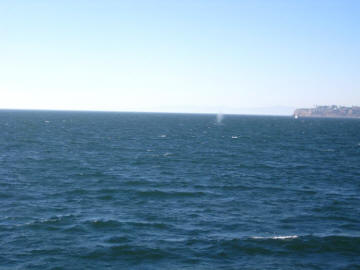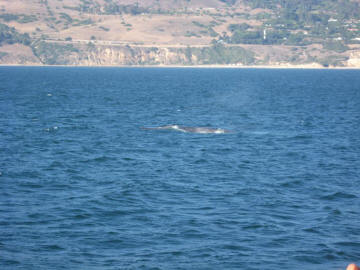Nick Turns Eleven (Page Two)

Did you know? - Whale lifespans vary among species and are not well characterized. Whaling left few older individuals to observe directly. R.M. Nowak of Johns Hopkins University estimated that humpback whales may live as long as 77 years. In 2007, a 19th century lance fragment was found in a bowhead whale off Alaska, suggesting the individual could be between 115 and 130 years old.
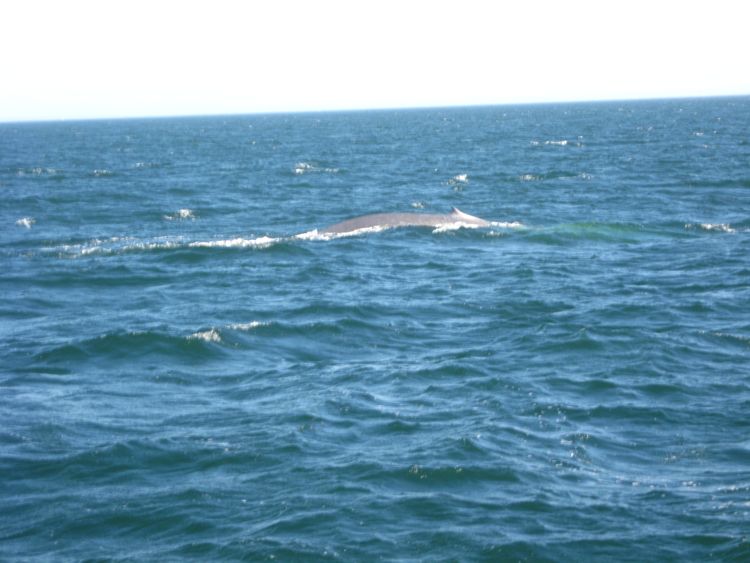
Huge beautiful animals
Did you know? - The Blue whale (Balaenoptera musculus) is a marine mammal belonging to the suborder of baleen whales (called Mysticeti) At over 33 metres (108 ft) in length and 180 metric tons (200 short tons)[4] or more in weight, it is the largest animal ever known to have existed.
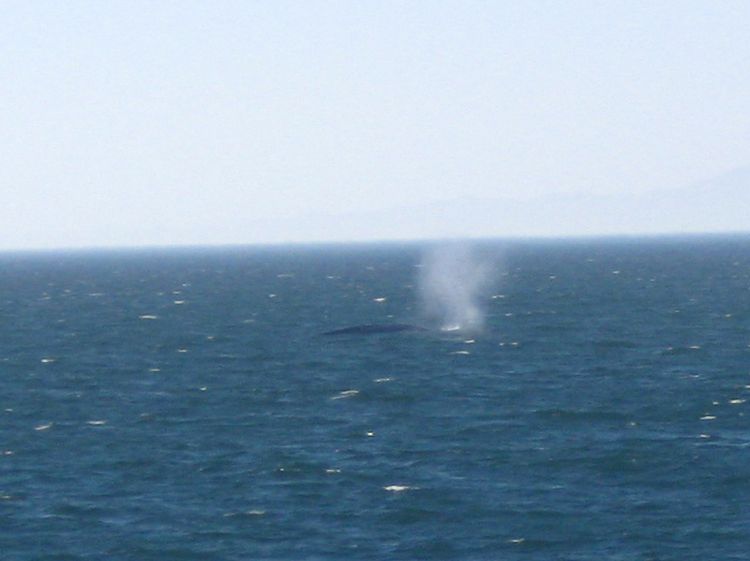
Hot air, mucus, and water shoots up thirty feet
Did you know? - Blue whales were abundant in nearly all the oceans until the beginning of the twentieth century. For over 40 years, they were hunted almost to extinction by whalers until protected by the international community in 1966. A 2002 report estimated there were 5,000 to 12,000 blue whales worldwide[8], located in at least five groups.
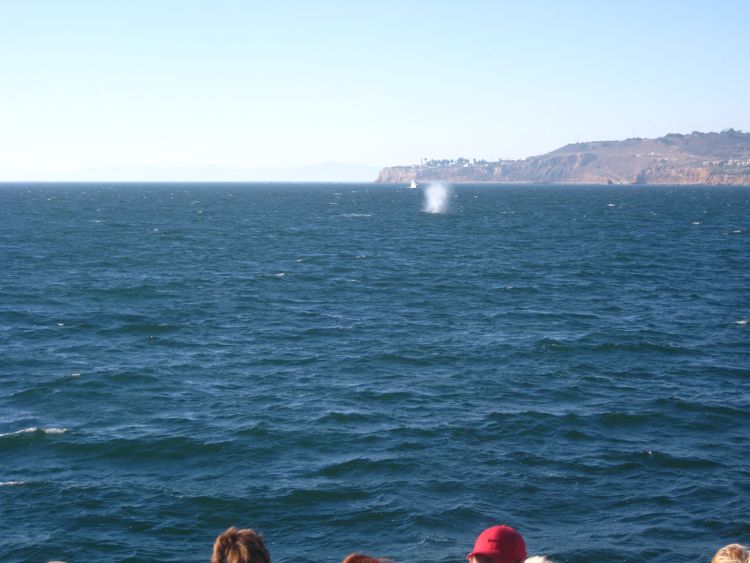
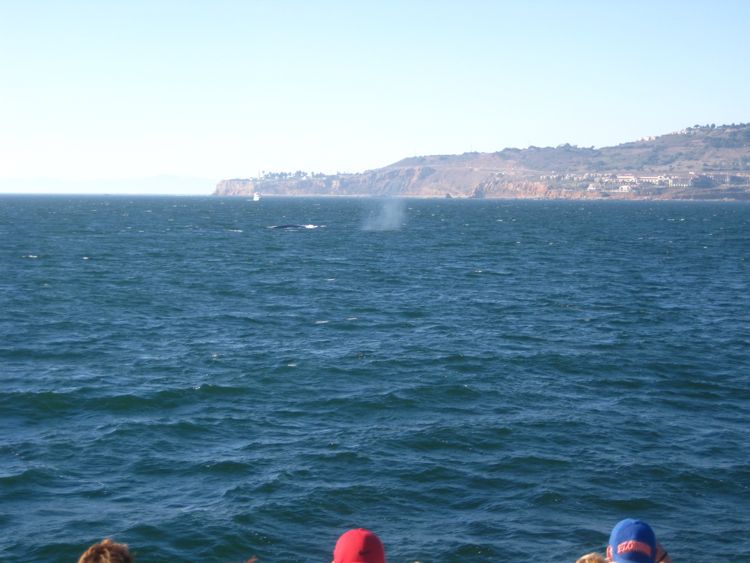
Did you know? - Blue whales are difficult to weigh because of their size. Most blue whales killed by whalers were not weighed whole, but cut up into manageable pieces first. This caused an underestimate of the total weight of the whale, due to the loss of blood and other fluids. Nevertheless, measurements between 150–170 metric tons (170–190 short tons) were recorded of animals up to 27 metres (89 ft) in length. The weight of an individual 30 metres (98 ft) long is believed by the American National Marine Mammal Laboratory (NMML) to be in excess of 180 metric tons (200 short tons). The largest blue whale accurately weighed by NMML scientists to date was a female that weighed 177 metric tons (195 short tons).
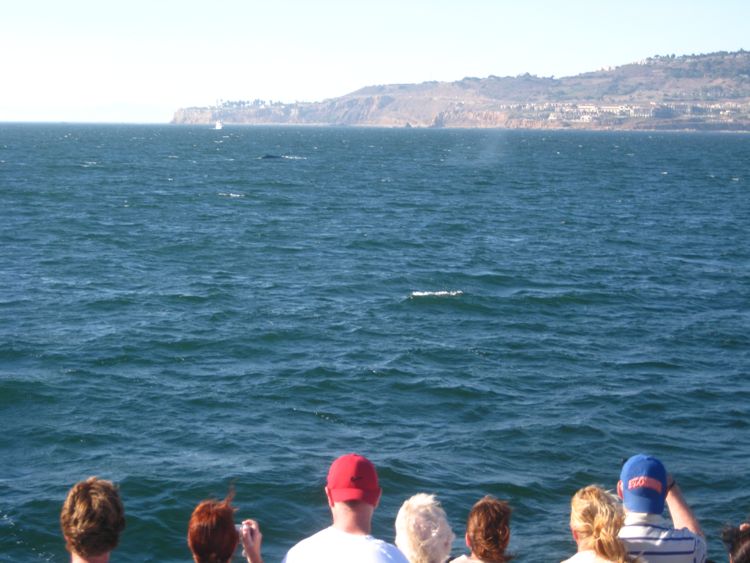

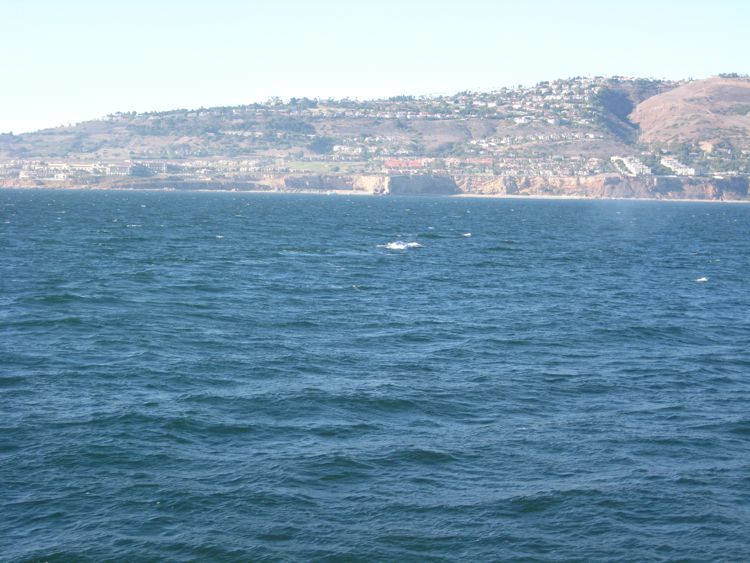
Did you know? - By 1882 ownership of the land had passed from the Sepulveda through various mortgage holders to Jotham Bixby of Rancho Los Cerritos, who leased the land to Japanese farmers. After the turn of the century most of Bixby's land was sold to a consortium of New York investors who created The Palos Verdes Project and began marketing land on the peninsula for small horse ranches and residential communities.
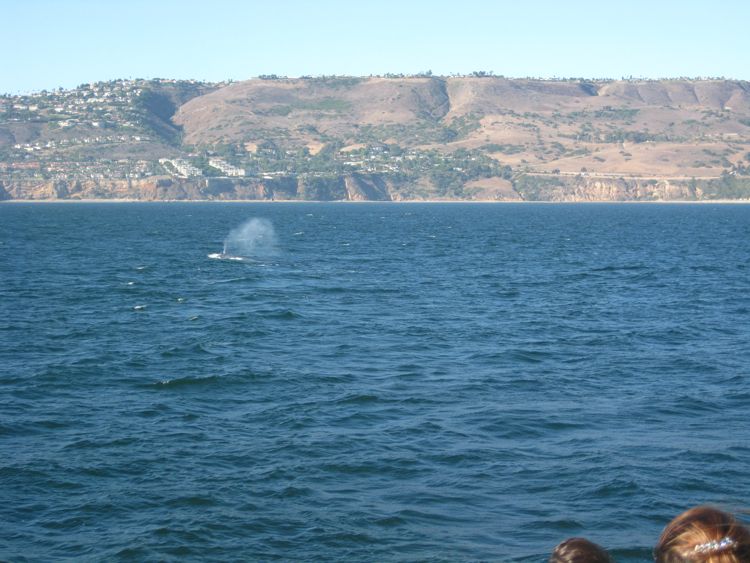
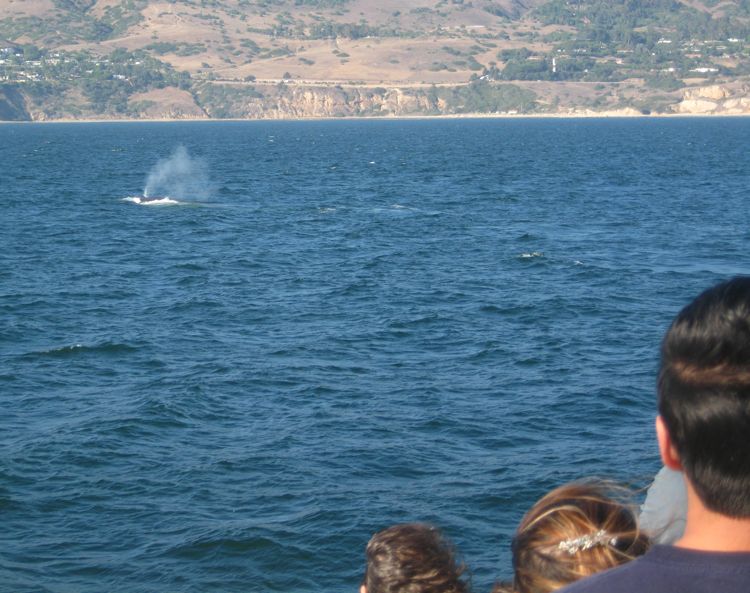
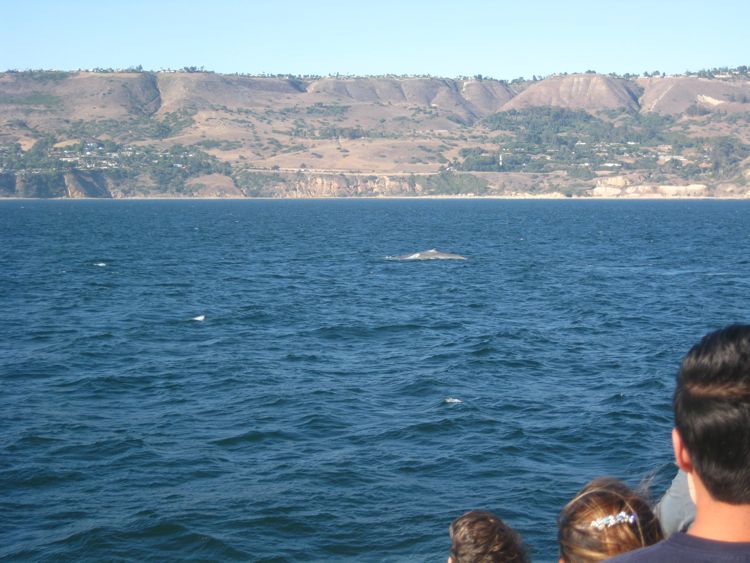


We got pretty close

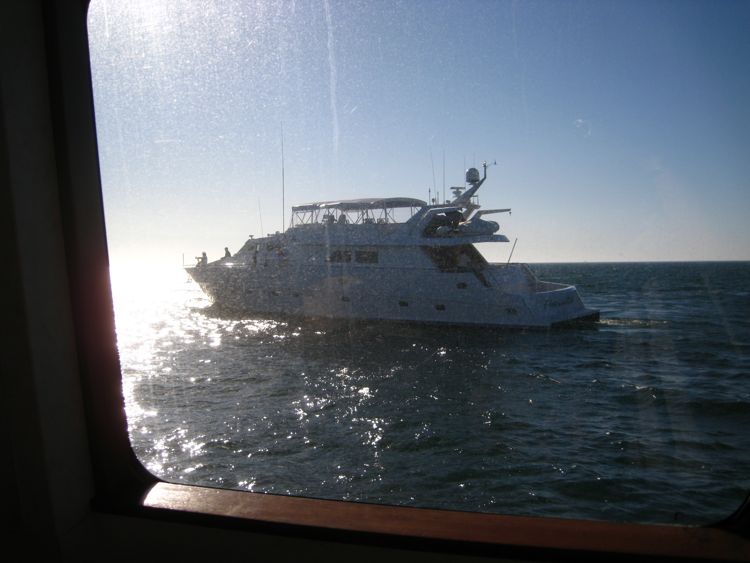
We had visitors


This is good!


We had perfect seats


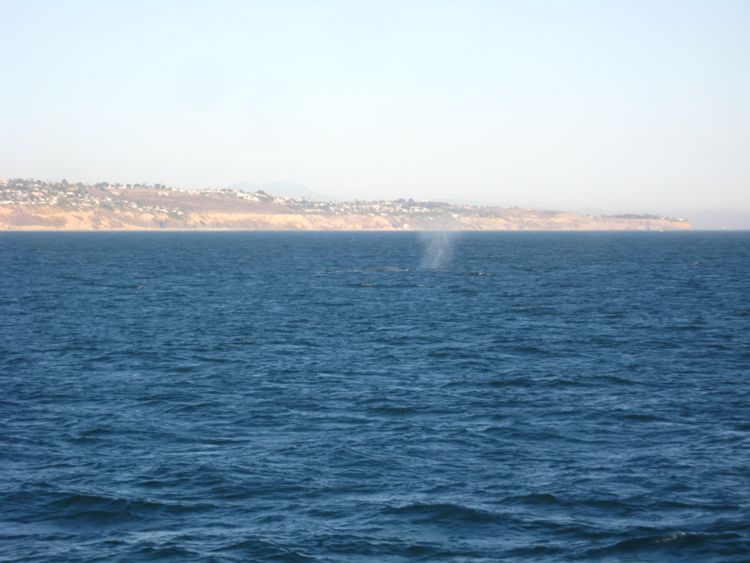
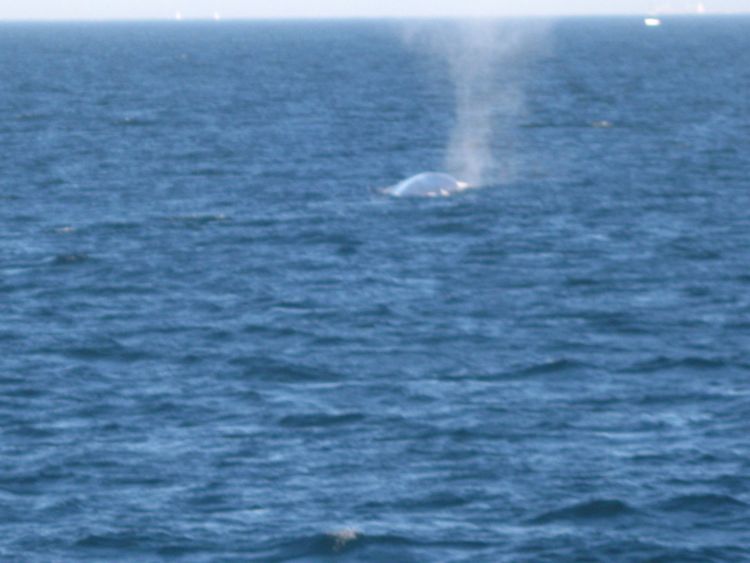
Poof! Whale snot
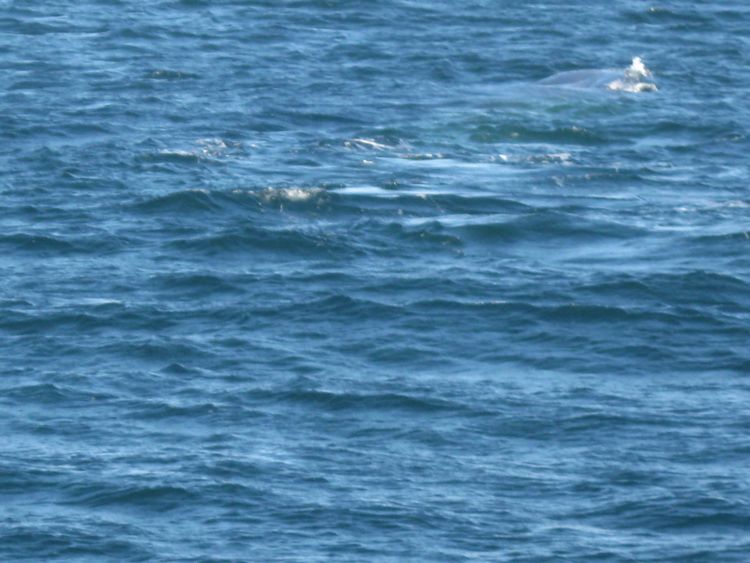
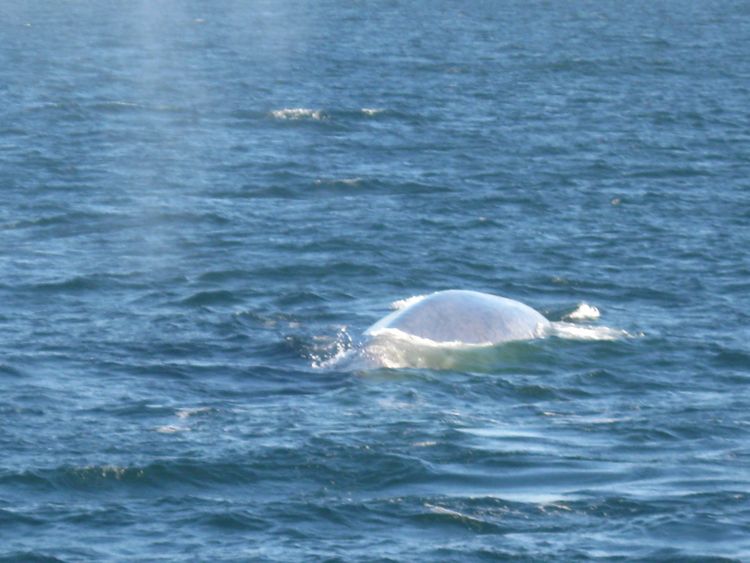

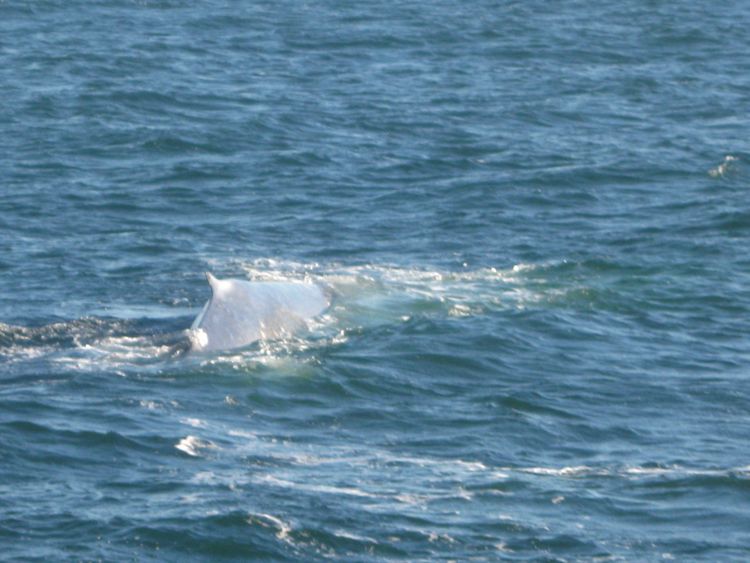
Blue whales feed almost exclusively on krill, though they also take small numbers of copepods.
Did you know? - Krill is the common name given to the order Euphausiacea of shrimp-like marine crustaceans. Also known as euphausiids, these small invertebrates are found in all oceans of the world. The common name krill comes from the Norwegian word krill meaning "young fry of fish", which is also often attributed to other species of fish.

Most krill are about 1–2 centimetres (0.4–0.8 in) long as adults, a few species grow to sizes on the order of 6–15 centimetres (2.4–5.9 in).
Krill are considered an important trophic connection—near the bottom of the food chain—because they feed on phytoplankton and to a lesser extent zooplankton, converting these into a form suitable for many larger animals for whom krill makes up the largest part of their diet. In the Southern Ocean, one species, the Antarctic krill, Euphausia superba, makes up an estimated biomass of over 500,000,000 tonnes (490,000,000 LT; 550,000,000 ST), roughly twice that of humans. Of this, over half is eaten by whales, seals, penguins, squid and fish each year, and is replaced by growth and reproduction. Most krill species display large daily vertical migrations, thus providing food for predators near the surface at night and in deeper waters during the day
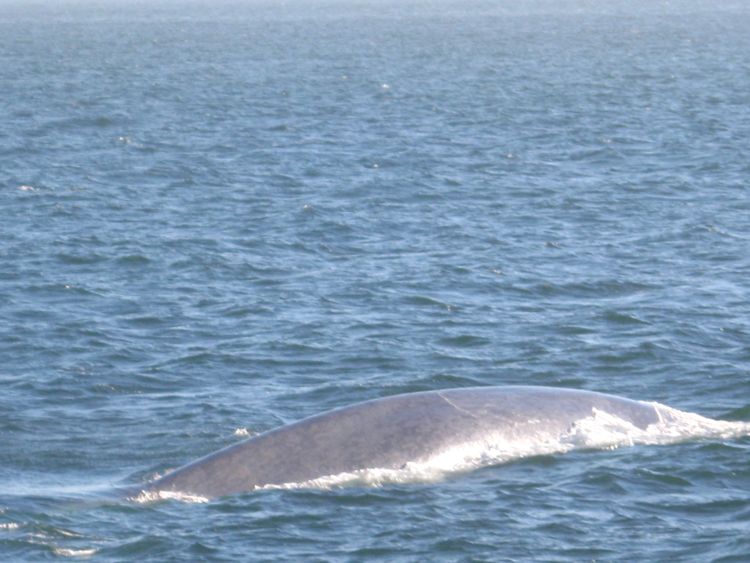
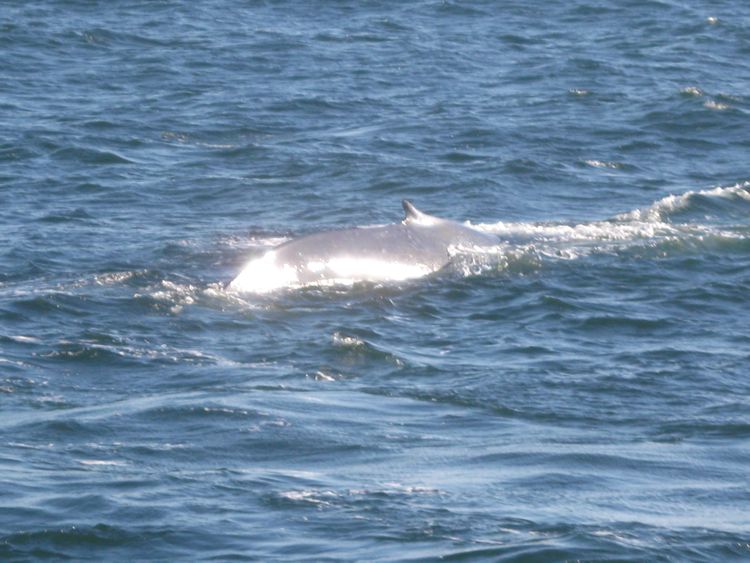


Heading back home
Wait... What Do We See?

Dolphins

Coming our way

100's of them
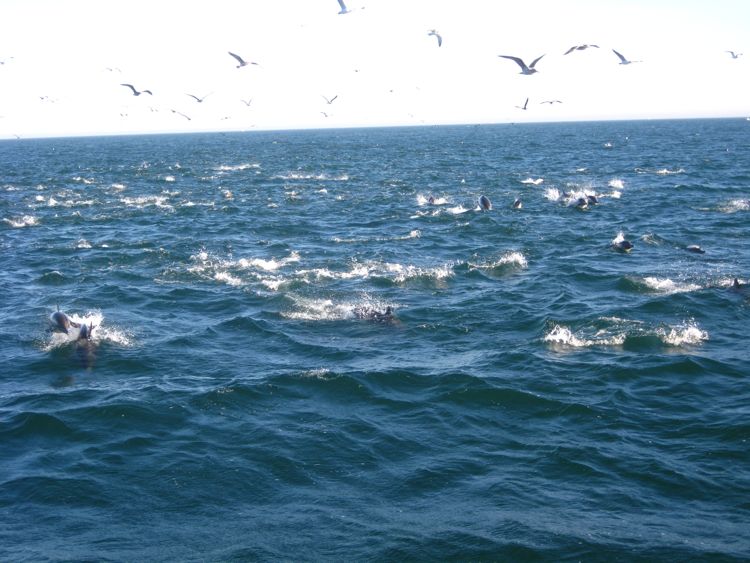 Wow
Wow

Did you know? - Dolphins are marine mammals that are closely related to whales and porpoises. There are almost forty species of dolphin in seventeen genera. They vary in size from 1.2 m (4 ft) and 40 kg (90 lb) (Maui's Dolphin), up to 9.5 m (30 ft) and 10 tonnes (9.8 LT; 11 ST) (the Orca or Killer Whale). They are found worldwide, mostly in the shallower seas of the continental shelves, and are carnivores, mostly eating fish and squid. The family Delphinidae is the largest in the Cetacean order, and relatively recent: dolphins evolved about ten million years ago, during the Miocene. Dolphins are among the most intelligent animals and their often friendly appearance and seemingly playful attitude have made them popular in human culture.

